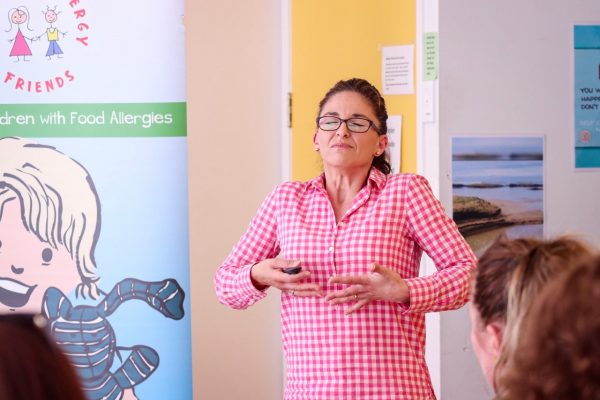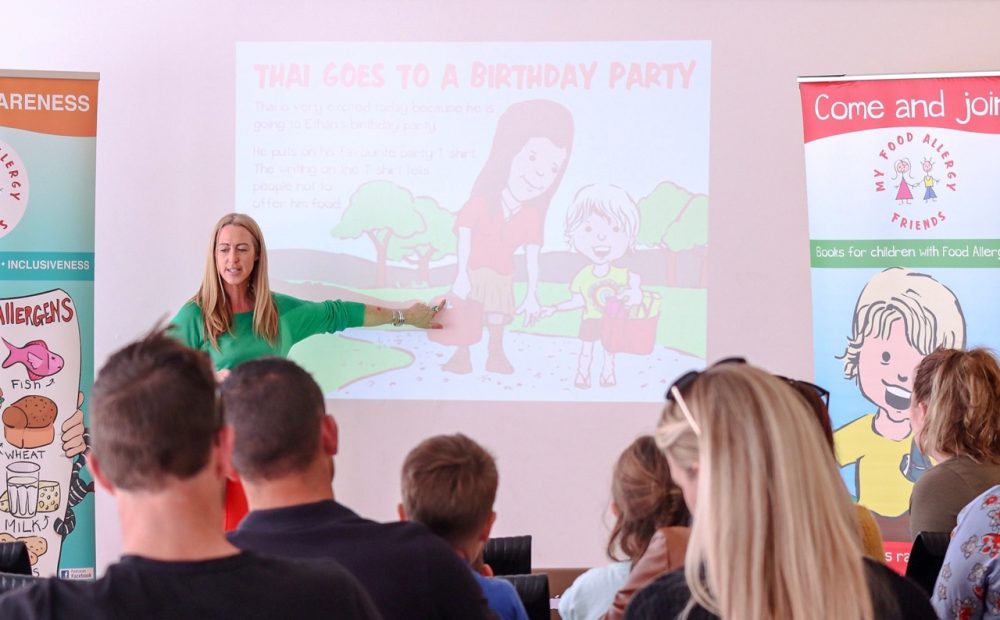To coincide with RU Okay Day let’s discuss something that is never spoken about – anxiety and the emotional health and wellbeing of families managing allergies.
It’s not a medical team handling reactions and administering adrenaline, it’s families. But what support or education are families given after receiving a food allergy diagnosis?
In most cases, not much and here lies the problem. Without education parents will feel overwhelmed and anxious about how to manage their new life with allergies. There simply isn’t the time to educate parents and children when they receive an allergy diagnosis at their GP or allergist. Allergists are focused on the medical tests and, there is limited time in these appointments for much else.
I remember the whole family being trained on how to use the EpiPen so we could save our child’s life if he should have an accidental exposure to one of his seven allergies. A few handouts! and off we were sent with a review in 12 months. Overwhelmed is an understatement! Thousands of families are now dealing with the daily challenges of food allergies but with almost no education. In fact, there are around 315,000 children in Australia with food allergies, many at risk! of anaphylaxis.
Food allergy does present a significant challenge for parents and their children, especially those dealing with multiple allergies who face a steep learning curve after diagnosis. You don’t want to instil fear in your child but, you do need to prepare them and educate them about anaphylaxis and find a balanced approach, so they are safe but not on high alert or anxious. The burden can often fall on the mothers’ shoulders, and yet we need families to be on the same page, managing this together. Today in our busy fast-paced world often only one parent can attend these medical appointments, and it’s often mothers who feel the burden on reading labels, cooking, shopping and managing the process of starting school or kindy. Then poor dad gets a bad rap when they try and give you some time off and forget to take the EpiPen or read labels. Grandparents are also looking after children today when both parents work. I’ve spoken to many grandparents who simply didn’t understand about label reading and have become terrified about looking after their own grandchild. Thankfully, it doesn’t have to be like this. We need to provide families with allergy education.

Food allergies can be life-changing, but they can also be managed. It will mean daily routines to create safe food and understanding cross-contamination and involving relatives or close friends who may not understand all of which can cause conflict at family get-togethers. Then there is the endless explaining to caregivers, friends, schools, and restaurants. It’s hard being on alert 24/7. There are no nights off where you just grab a takeaway. Precaution and avoidance can leave parents and children feeling overwhelmed and always on high-alert.
An anxious parent can result in a child also feeling anxious about managing their allergies. Let’s change that by helping parents navigate the journey with food allergies and empower them to take back control of their life.
Let’s not forget too how important it is about educating children. Children can begin learning as soon as they are diagnosed, using simple terms such as ‘no danger food’, just as you teach a child not to touch a hot oven. Stories and visual images will also help them identify their allergens and learn how to protect themselves. At each developmental stage, they will be able to understand and take on more knowledge and responsibly. Your goal is to give them knowledge because this will give them the power to eventually advocate for themselves so that when they are teenagers, they will have the confidence and knowledge you have given them over the years.
I hear from parents all the time who are struggling with anxiety. I see some parents crippled with fear worrying about their child having anaphylaxis and wondering if they know what to do or how to cope with a traumatic event such as anaphylaxis, or not being able to move forward after a reaction. School is always a big trigger for anxiety. Education can change this. Families need medical support but also education, emotion support and sometimes the help of a dietician or counsellor.
Together we are stronger, and in our Allergy Masterclass, we help educate dads, children, grandparents, mums and close family friends on how to live an amazing life with allergies and reduce and manage the emotional impact on families. Families need more than just an EpiPen to manage this condition. Family education is the key.
You may also like to read:









